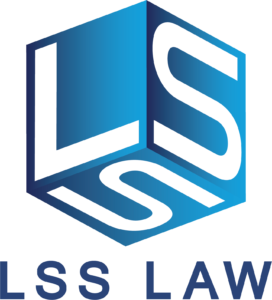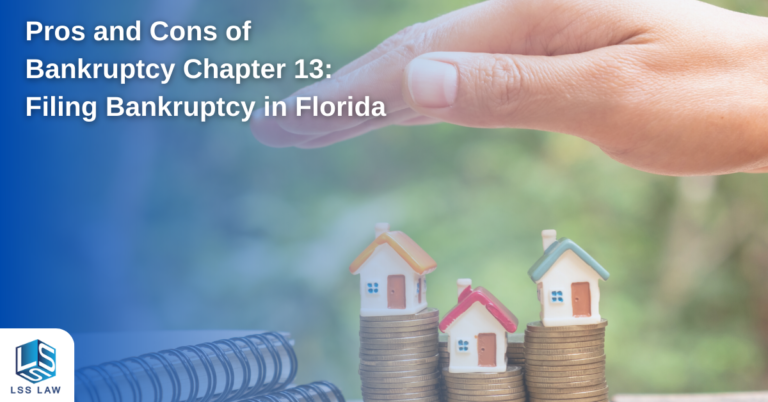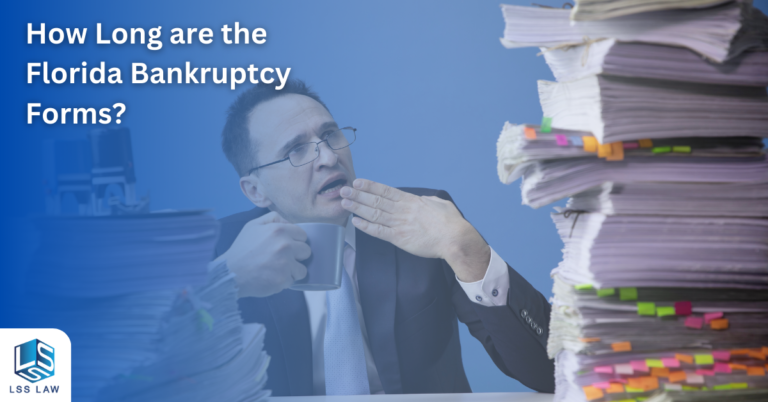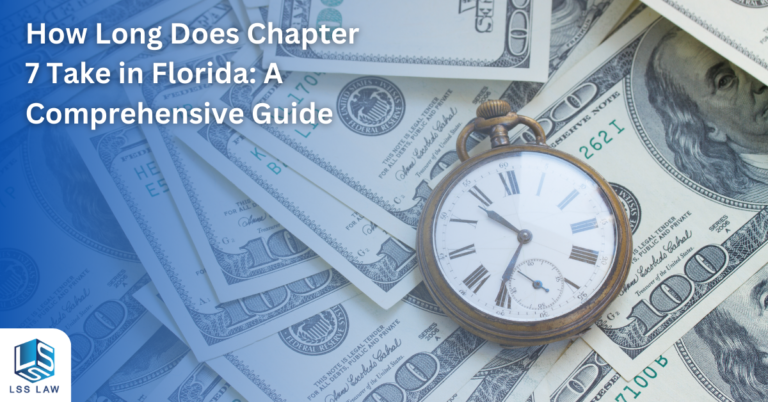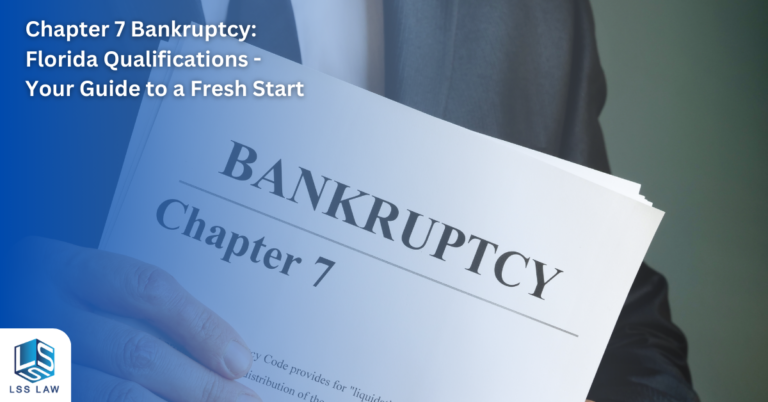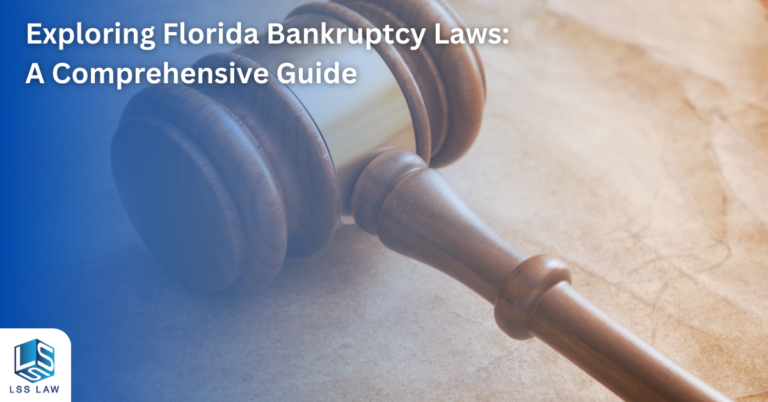If you are considering filing for bankruptcy in Florida, it is important to understand the pros and cons of Chapter 13. This type of bankruptcy, also known as a “wage earner’s plan” is for individuals with regular income. In this article, we will discuss the advantages and disadvantages of Chapter 13 bankruptcy for both businesses and individuals, as well as the differences between Chapter 7 and Chapter 13.
About Chapter 13 Bankruptcy
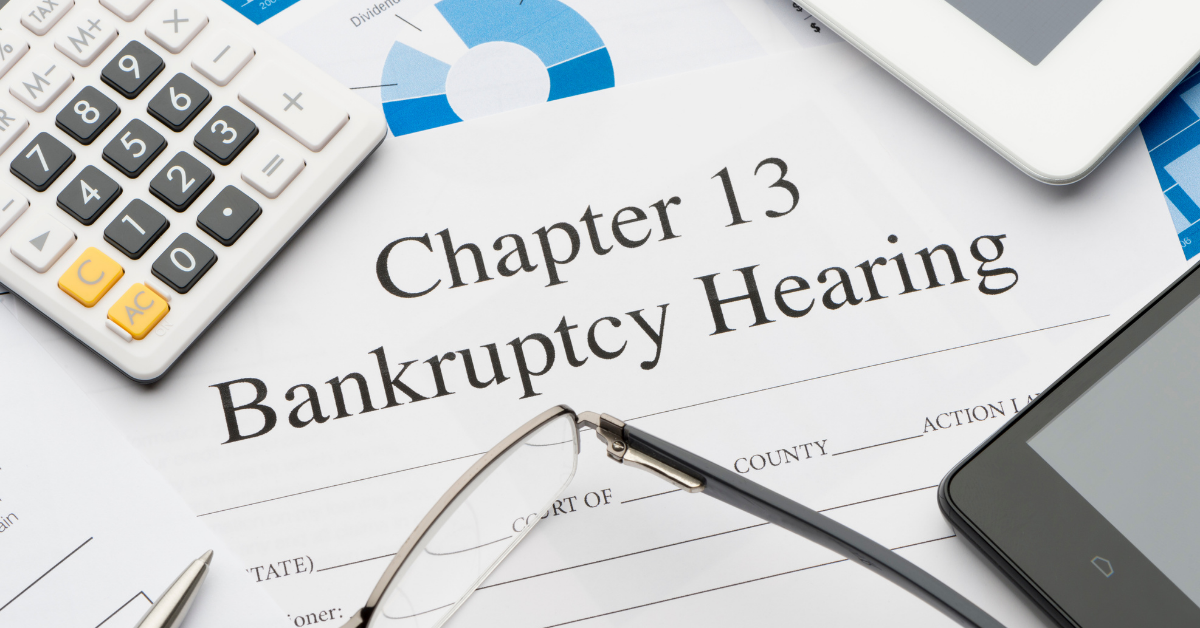
Chapter 13 bankruptcy is a legal process that allows individuals and businesses to reorganize their financial obligations and create a repayment plan to pay off their debts over a period of three to five years. The repayment plan is based on the debtor’s disposable income, which is the amount of money left over after paying necessary living expenses. The bankruptcy court must approve the repayment plan, and the debtor must make regular payments to a bankruptcy trustee, who then distributes the funds to creditors.
Pros of Chapter 13 Bankruptcy
There are several advantages to filing for Chapter 13 bankruptcy, including:
1. Stops Foreclosure and Repossession: Chapter 13 can help you save your home from foreclosure and your car from repossession by allowing you to catch up on missed debt payments through your repayment plan.
2. Consolidates Debts: Chapter 13 allows you to consolidate your unsecured debts, such as credit card debt and medical bills, into one monthly payment. This can make it easier to manage your financial obligations and help you avoid aggressive collection action from creditors.
3. Protects Co-Signers: If someone co-signed a loan for you, filing for Chapter 13 can protect them from being held responsible for your debt.
4. Discharges Certain Debts: At the end of your repayment plan, any remaining unsecured debts may be discharged, meaning you are no longer legally obligated to pay them.
5. No Liquidation of Assets: Unlike Chapter 7 bankruptcy, which requires the liquidation of non-exempt assets to repay creditors, Chapter 13 allows you to keep your property as long as you continue making payments on your secured debts, such as a mortgage or car loan.
Cons of Chapter 13 Bankruptcy
However, there are also some disadvantages to filing for Chapter 13 bankruptcy:
1. Longer Time Commitment: A Chapter 13 repayment plan can last up to five years, which is a significant amount of time to be under the supervision of the bankruptcy court.
2. Negative Impact on Credit: A Chapter 13 bankruptcy will remain on your credit report for seven years, making it more difficult to obtain credit in the future. However, successfully completing a Chapter 13 repayment plan can show future lenders that you have taken steps to address your financial troubles.
3. Limited Eligibility: Not everyone is eligible for Chapter 13 bankruptcy. You must have a regular source of income and your total debt must be below certain limits.
4. Loss of Discretionary Income: During your repayment plan, all of your disposable income will be dedicated to paying off your debts, leaving little extra cash for non-essential spending.
Comparing Chapter 13 and Chapter 7 Bankruptcy
While Chapter 13 bankruptcy has its advantages and disadvantages, it is important to also consider Chapter 7 bankruptcy as an alternative. Chapter 7, also known as liquidation bankruptcy, involves the sale of non-exempt assets to repay creditors. The process is generally quicker than Chapter 13, with most cases being completed within a few months.
Pros of Chapter 7 Bankruptcy
1. Faster Debt Relief: Chapter 7 bankruptcy can provide a fresh start in a matter of months, compared to the three to five-year commitment required by Chapter 13.
2. Discharge of Unsecured Debts: Most unsecured debts, such as credit card debt and medical bills, can be eliminated through Chapter 7 bankruptcy.
3. No Repayment Plan: Unlike Chapter 13, there is no repayment plan in Chapter 7 bankruptcy. Instead, non-exempt assets are liquidated to repay creditors.
Cons of Chapter 7 Bankruptcy
1. Loss of Assets: In Chapter 7 bankruptcy, you may be required to sell non-exempt assets to repay your debts.
2. Negative Impact on Credit: Like Chapter 13, a Chapter 7 bankruptcy will remain on your credit report for seven years.
3. No Protection for Co-Signers: Chapter 7 does not protect co-signers from being held responsible for their debts.
4. Limited Eligibility: You must pass a means test to qualify for Chapter 7 bankruptcy, which considers your income and expenses to determine if you can repay your debts.
Seeking Professional Help
If you are considering filing for bankruptcy in Florida, it is important to consult with an experienced bankruptcy attorney to discuss your options and determine the best solution for your financial situation. At LSS Law, our team of knowledgeable bankruptcy lawyers can help you navigate the bankruptcy process and provide guidance on the pros and cons of bankruptcy Chapter 13, as well as other bankruptcy options. Contact us today for a free consultation and take the first step towards financial freedom.
Is Filing Chapter 13 Bankruptcy Bad?

Many people wonder, “Is filing Chapter 13 bankruptcy bad?” The answer is no; in fact, filing Chapter 13 bankruptcy can be a responsible decision for those facing financial challenges. While it does have some drawbacks, such as its impact on your credit history and the commitment to a repayment plan, Chapter 13 bankruptcy offers numerous benefits that can help you regain control of your financial situation.
A Responsible Way to Repay Creditors
One of the main advantages of Chapter 13 bankruptcy is that the bankruptcy proceedings allow you to repay your creditors in a structured and manageable way. By creating a repayment plan based on your disposable income, you demonstrate a commitment to fulfilling your financial obligations. This can be viewed positively by creditors and future lenders, as it shows that you are taking responsibility for your debts and working towards a solution during the bankruptcy process.
Protection of Valuable Assets
Another benefit of Chapter 13 bankruptcy is the protection it offers for your valuable assets, such as your home and car. By filing for Chapter 13, you can prevent foreclosure and repossession, ensuring that you and your family have a stable place to live and reliable transportation. This can provide peace of mind and a sense of security as you work towards rebuilding your financial life.
Addresses Non-Dischargeable Debts
Chapter 13 bankruptcy also provides an opportunity to address non-dischargeable debts that cannot be eliminated in Chapter 7 bankruptcy. These may include certain tax debts, debts from a divorce settlement, and child support or alimony obligations. By including these debts in your repayment plan, you can work towards resolving these financial issues and avoid potential legal consequences.
Credit Rebuilding Potential
While Chapter 13 bankruptcy does hurt your credit score and credit record, it also provides the opportunity to begin rebuilding your credit by following the payment plan. By making consistent, on-time payments and demonstrating responsible financial behavior, you can improve your credit score over time. This can make it easier to obtain new credit, such as loans or credit cards, in the future.
Professional Guidance and Support
Filing for Chapter 13 bankruptcy can be a complex process, but with the help of an experienced bankruptcy lawyer, you can navigate the legal requirements with confidence. Your bankruptcy attorney will guide you through the process, provide valuable advice, and advocate on your behalf in bankruptcy court. This support can make the bankruptcy process less daunting and help ensure a successful outcome.
In reality, filing Chapter 13 bankruptcy is not a “bad” decision, but rather a responsible step towards regaining control of your financial situation. By repaying your debts, protecting your assets, and working with an experienced bankruptcy attorney, you can move forward with a fresh start and a renewed sense of financial stability.
Schedule Your No-Cost Strategy Session with LSS Law Today
If you’re considering filing for bankruptcy and want to explore your options for South Florida debt relief, schedule a no-cost Strategy Session with LSS Law. Our experienced bankruptcy attorneys can help you determine the best course of action for your unique financial situation. To get started, simply fill out the form on our website or call us at 954-466-0541. Don’t wait – take the first step towards a fresh financial start today.
Download Our Free Report: “Get Out of Debt! Secrets Your Creditors Don’t Want You to Know!”
In addition to scheduling your Strategy Session, be sure to download our exclusive report, “Get Out of Debt! Secrets Your Creditors Don’t Want You to Know!” This valuable resource is packed with insider tips and strategies to help you navigate the complex world of debt and bankruptcy. To access your free copy, simply bring your cursor to the top right of your page and it will appear. Don’t miss this opportunity to gain the knowledge you need to take control of your financial future!
Pros and Cons of Bankruptcy Chapter 13 – Your Questions Answered
As you consider filing for Chapter 13 bankruptcy, you may have some questions about the process and its implications. In this FAQ section, we will address some common concerns and provide insight into the benefits of Chapter 13 bankruptcy. Remember, our goal is to help you make informed decisions and guide you toward a brighter financial future.
What is the downside to filing Chapter 13?
While Chapter 13 bankruptcy offers several advantages, there are some downsides to consider. The most notable downside is the impact on your credit report, which can last up to seven years. Additionally, Chapter 13 requires a commitment to a repayment plan that typically lasts three to five years. This can be challenging for some individuals, especially if their financial situation changes during this time. However, with the guidance of an experienced bankruptcy attorney and a well-structured repayment plan, many people find that the benefits of Chapter 13 outweigh its downsides.
Are Chapter 13 bankruptcies worth it?
For many individuals facing financial difficulties, Chapter 13 bankruptcies can be worth it. This type of bankruptcy offers numerous benefits, such as the ability to repay creditors in a manageable way, the protection of valuable assets, and the opportunity to address non-dischargeable debts. While there are some drawbacks, such as the impact on your credit report and the commitment to a repayment plan, many people find that Chapter 13 provides a responsible and effective path to financial recovery.
What is the advantage of Chapter 13 bankruptcy?
There are several advantages to filing for Chapter 13 bankruptcy, including a structured and manageable repayment plan, protection of valuable assets, the opportunity to address non-dischargeable debts, and the potential to rebuild your credit over time.
By considering these advantages and working with an experienced bankruptcy attorney, you can determine if Chapter 13 bankruptcy is the right choice for your unique financial situation.
Can Chapter 13 bankruptcy help with my student loan debt?
While Chapter 13 bankruptcy can help you manage your student loan debt by including it in your repayment plan, student loan debt is generally not dischargeable in bankruptcy. This means that at the end of your Chapter 13 repayment plan, you will still be responsible for paying any remaining student loan debt.
